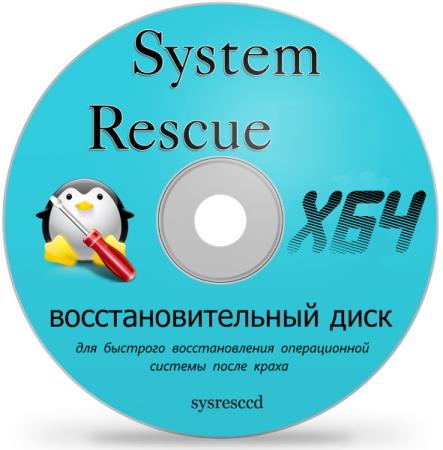Популярные статьи
Реклама
Обратная связь
Яндекс Апдейт
Сервис не доступен
Оцените работу движка
Кто онлайн
Гость Гость Гость Гость Гость Гость Гость Гость Гость Гость Гость Гость Гость Гость Гость Гость Гость Гость Гость Гость Гость Гость Гость Гость Гость Гость Гость Гость Гость Гость Гость Гость Гость Гость Гость Гость Гость Гость Гость Гость Гость Гость Гость Гость Гость Гость Гость Гость Гость Гость Гость Гость Гость Гость Гость Гость Гость Гость Гость Гость Гость Гость Гость Гость Гость Гость Гость Гость Гость Гость Гость Гость Гость Гость Гость Гость Гость Гость Гость Гость Гость Гость Гость Гость Гость Гость Гость Гость Гость Гость Гость Гость Гость Гость Гость Гость Гость Гость Гость Гость Гость Гость Гость Гость Гость Гость Гость Гость Гость Гость Гость Гость Гость Гость Гость Гость Гость Гость Гость Гость Гость Гость Гость Гость Гость Гость Гость Гость Гость Гость Гость Гость Гость Гость Гость Гость Гость Гость Гость Гость Гость Гость Гость Гость Гость Гость Гость Гость Гость Гость Гость Гость Гость Гость Гость Гость Гость Гость Гость Всего: 159
У нас искали

 Категория: Безопасность
Категория: Безопасность
 Дата: 28-05-2025, 11:16
Дата: 28-05-2025, 11:16
 Автор публикации: BonnieCowell63
Автор публикации: BonnieCowell63
Plumbing, the intricate system of pipes, tanks, and for the water supply, heating, and sanitation of a building; is an integral part of our daily lives and modern civilization as a whole.

 Название: Do You Have Free Casino Games?
Название: Do You Have Free Casino Games?
 Категория: Безопасность
Категория: Безопасность
 Дата: 27-05-2025, 21:03
Дата: 27-05-2025, 21:03
 Автор публикации: MildredRbm
Автор публикации: MildredRbm
 Теги:
Теги:
It also has an excellent selection of bonuses and welcome offers, as well as several different customer support services. The site offers a wide variety of games, from slots and table games to live casino experiences and sports betting.
My page;
My page;

 Категория: Безопасность
Категория: Безопасность
 Дата: 27-05-2025, 20:36
Дата: 27-05-2025, 20:36
 Автор публикации: ErmelindaIngalls
Автор публикации: ErmelindaIngalls
Among the most effective means to obtain this is with Browse Engine Optimization (SEARCH ENGINE OPTIMIZATION ), [/url] especially by that help in creating premium quality back web links.

 Название: SystemRescue 12.01 Final
Название: SystemRescue 12.01 Final
 Категория: Безопасность
Категория: Безопасность
 Дата: 26-05-2025, 19:34
Дата: 26-05-2025, 19:34
 Автор публикации: SamDel
Автор публикации: SamDel
 Теги: восстановить, операционную, систему, live cd
Теги: восстановить, операционную, систему, live cd
SystemRescue — это набор инструментов для спасения системы Linux, доступный в виде загрузочного носителя для администрирования или восстановления системы и данных после сбоя. Он призван обеспечить простой способ выполнения административных задач на вашем компьютере, таких как создание и редактирование разделов жесткого диска.

 Категория: Безопасность
Категория: Безопасность
 Дата: 26-05-2025, 02:37
Дата: 26-05-2025, 02:37
 Автор публикации: VXMRoxanne
Автор публикации: VXMRoxanne
It's no wonder that there are so many online casinos out there, and with such a wide selection it can be difficult to know which one is right for you. If you loved this article and you simply would like to acquire more info with regards to [/url] nicely visit the website. That's why at CasinoReviews.

 Название: Buy Lidocaine Powder Cheap & Easy
Название: Buy Lidocaine Powder Cheap & Easy
 Категория: Безопасность
Категория: Безопасность
 Дата: 25-05-2025, 21:45
Дата: 25-05-2025, 21:45
 Автор публикации: BenitoGellatly
Автор публикации: BenitoGellatly
 Теги: benzocainesupplier benzocaine suppliers, buy cheap benzocaine, benzocainesupplier benzocaine uk
Теги: benzocainesupplier benzocaine suppliers, buy cheap benzocaine, benzocainesupplier benzocaine uk
If you want to know where to buy lidocaine over the counter in Australia, you have several options If you want to check out more information on [/url] look at our website. .

 Название: Buy Lidocaine Powder Cheap & Easy
Название: Buy Lidocaine Powder Cheap & Easy
 Категория: Безопасность
Категория: Безопасность
 Дата: 25-05-2025, 21:45
Дата: 25-05-2025, 21:45
 Автор публикации: BenitoGellatly
Автор публикации: BenitoGellatly
 Теги: benzocainesupplier benzocaine suppliers, buy cheap benzocaine, benzocainesupplier benzocaine uk
Теги: benzocainesupplier benzocaine suppliers, buy cheap benzocaine, benzocainesupplier benzocaine uk
If you want to know where to buy lidocaine over the counter in Australia, you have several options If you want to check out more information on [/url] look at our website. .

 Название: Buy Lidocaine Powder Cheap & Easy
Название: Buy Lidocaine Powder Cheap & Easy
 Категория: Безопасность
Категория: Безопасность
 Дата: 25-05-2025, 21:42
Дата: 25-05-2025, 21:42
 Автор публикации: BenitoGellatly
Автор публикации: BenitoGellatly
 Теги: benzocainesupplier benzocaine suppliers, buy cheap benzocaine, benzocainesupplier benzocaine uk
Теги: benzocainesupplier benzocaine suppliers, buy cheap benzocaine, benzocainesupplier benzocaine uk
If you want to know where to buy lidocaine over the counter in Australia, you have several options If you want to check out more information on [/url] look at our website. .

 Название: Buy Lidocaine Powder Cheap & Easy
Название: Buy Lidocaine Powder Cheap & Easy
 Категория: Безопасность
Категория: Безопасность
 Дата: 25-05-2025, 21:40
Дата: 25-05-2025, 21:40
 Автор публикации: BenitoGellatly
Автор публикации: BenitoGellatly
 Теги: benzocainesupplier benzocaine suppliers, buy cheap benzocaine, benzocainesupplier benzocaine uk
Теги: benzocainesupplier benzocaine suppliers, buy cheap benzocaine, benzocainesupplier benzocaine uk
If you want to know where to buy lidocaine over the counter in Australia, you have several options If you want to check out more information on [/url] look at our website. .

 Категория: Безопасность
Категория: Безопасность
 Дата: 25-05-2025, 12:50
Дата: 25-05-2025, 12:50
 Автор публикации: DortheaThurlow9
Автор публикации: DortheaThurlow9
 Теги:
Теги:
Daftar link agen slot online resmi gacor kami menjadi alternatif ideal untuk mencari pengalaman bermain online menang.

 Просмотров: 18
Просмотров: 18  Комментариев: (0)
Комментариев: (0)